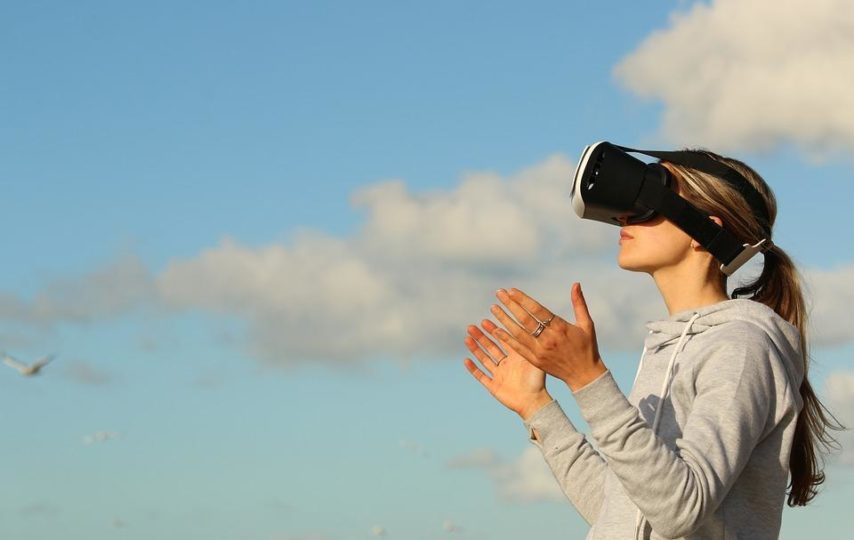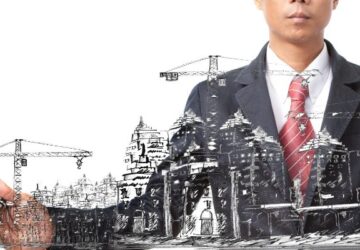Not so many years ago, virtual reality (VR) seemed like a far-fetched idea, that only seemed possible in another lifetime. As it slowly became a niche product in the gaming industry, its benefits began to be recognized and transferred into the wider business sphere. Through the use of VR, businesses can create true to life simulations that are representative of their business or product and service. Whilst the technology is still in its infancy before hitting the mainstream, here are ways in which VR application can transform businesses.
Mobile App Development
Virtual Reality mobile applications have improved how business operations are carried out, giving services a sense of seamlessness and ease. Such transformation has led to improved business efficiency and the demand for app developers to incorporate VR technology is growing.
Mobile app developers have started to create several VR devices that have made the technology readily available for public use. Such devices have made mobile phones function as virtual reality gadgets which has helped in growing the VR market even further.
Mobility is perhaps the primary factor that has contributed to the success of mobile apps and so VR apps have taken the experience up a notch. They have allowed users to enjoy mobility to an extent that was not possible before.
VR Within the Travel Sector
The use of VR technology within the travel section is still early days, however, such ideas have led to companies experimenting with VR headsets and finding good, sustainable uses of them.
One of the best examples of virtual reality in action within the travel industry is the use of the technology for providing virtual tours of hotels and hotel rooms. The key benefit of this is that it offers businesses a USP by allowing potential customers to experience the hotels aesthetics, prior to their arrival which gives the business greater transparency than the use of standard 2D imagery.
Some travel companies have taken the use of VR a step further, offering an entire booking option and user interface that can be experienced through a virtual reality headset. This replaces the need to use a traditional computer mouse or touch screen in order to make a hotel or flight booking. This creates an overall seamless booking experience that adheres to customer satisfaction which results in brand loyalty.
Construction
New construction technology is quickly shifting the way construction is done, from apps on mobile devices, to laser scanning and drone photogrammetry. Although few construction sites have fully escaped the onward march of technology, many companies are beginning to embrace it and are subsequently reaping its rewards.
Through the use of VR, construction companies can now quickly scale up the size and dimensions of a building and create detailed and accurate models at a quicker and cheaper rate. Creating a VR design or plan also allows builders and clients to immerse themselves in the project as though they were actually there, enabling them to interact with the environment and visualise. Throughout the construction process, a VR environment allows customers to watch the project unfold, and track progression.
By improving scalability, collaboration and customer experience, VR helps construction companies overcome problems to create a more profitable construction experience with greater customer satisfaction.
Retail
Virtual Reality in retail is predicted to be one of the next big things in the world of commerce. The retail sector offers some of the most explicitly commercial applications of VR such as revolutionizing the concept of “try before you buy” as well as promoting brand identity design and products in an entirely new way.
Virtual reality is a technology that bridges the gap between online and real worlds, which is why it works so well for both online and traditional retailers. The emotional and physical power of VR can heighten online engagement, but also provide a unique in-store experience that benefits potential buyers.
VR is a natural fit for online retailing. Over the last couple of years, Amazon and IKEA have implemented diverse systems of “try before you buy” that create accurate 3D impressions of how certain objects will fit into the interior.
Implementing a VR experience in-store will drive footfall by creating a buzz around a particular part of the shop. As a result, this could lead to increase conversion rates and brand loyalty as it creates an unforgettable shopping experience.
Health Care
Virtual Reality is slowly finding its way into the healthcare industry. As precision is one of the most important things during a surgery that can determine the success and failure of an intervention, VR can be used to help surgeons be more precise as 3D visualisations can be used to show organs from multiple angles in real time.
By installing numerous cameras at different angles around an operating theatre to create a 360-degree view, medical students can wear a VR headset to immerse themselves in what can be a high-pressured environment to gain vital insight and experience whilst training.
Virtual reality can also be used to bring benefits to patients that are dealing with psychological issues such as phobias, by putting them in a virtual environment where they are able to face their fears in order to conquer them.
Interviews
Several companies are beginning to incorporate VR into their business by using it to screen candidates. The interviewers can communicate with applicants ‘face to face’ without having to actually go and meet them. Through this, recruiters are able to study key factors of the candidate as if they were at the real interview such as body language and attitude as well as confidence and nerve levels. This saves time and effort as well as cutting on costs of business travel.
Virtual tours
This concept is mainly applicable to architectural businesses, real estate and travel and gives businesses an advantage of being able to offer potential costumes interactive, virtual tours of various locations.
In a nutshell, many companies are beginning to recognise and understand the benefits of virtual reality. Technological breakthroughs are likely to bring about more changes in the next decade or so and more companies will be leveraging the benefits of Vr technology.








